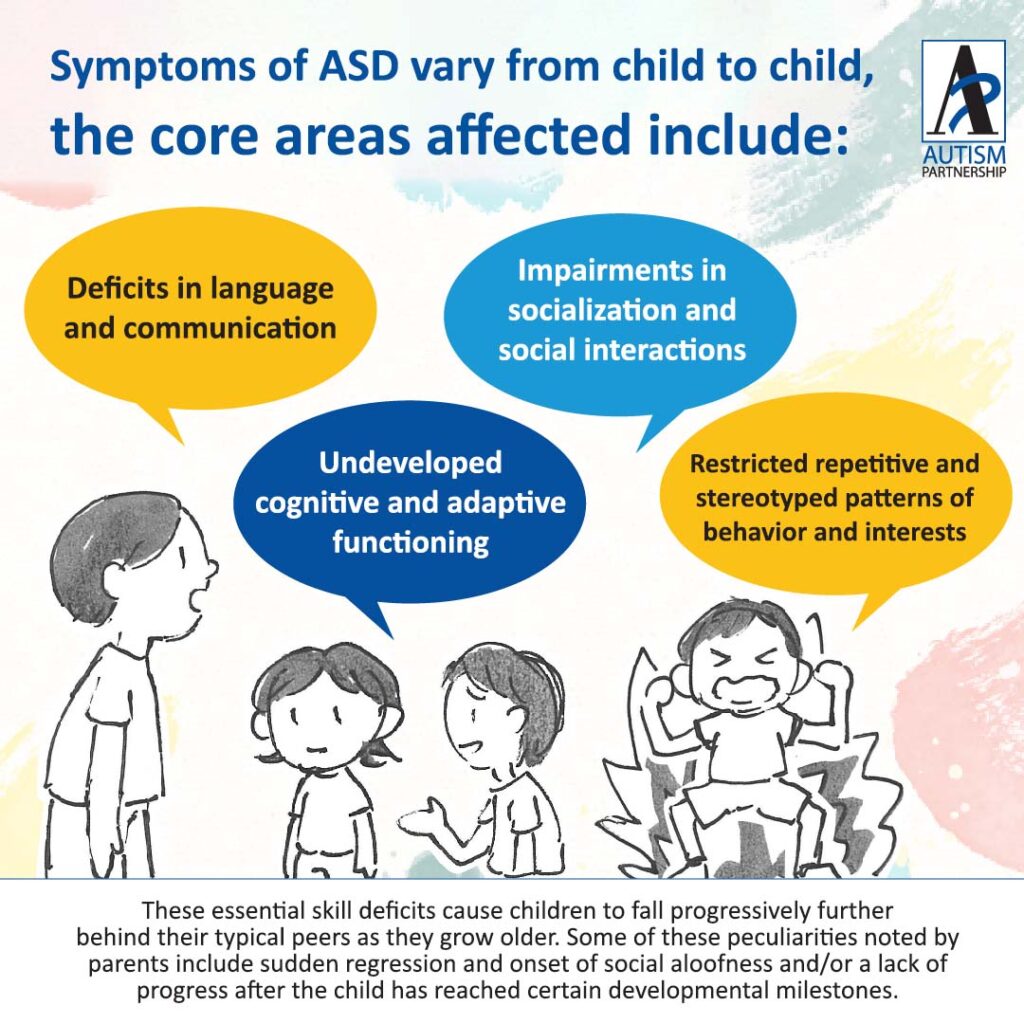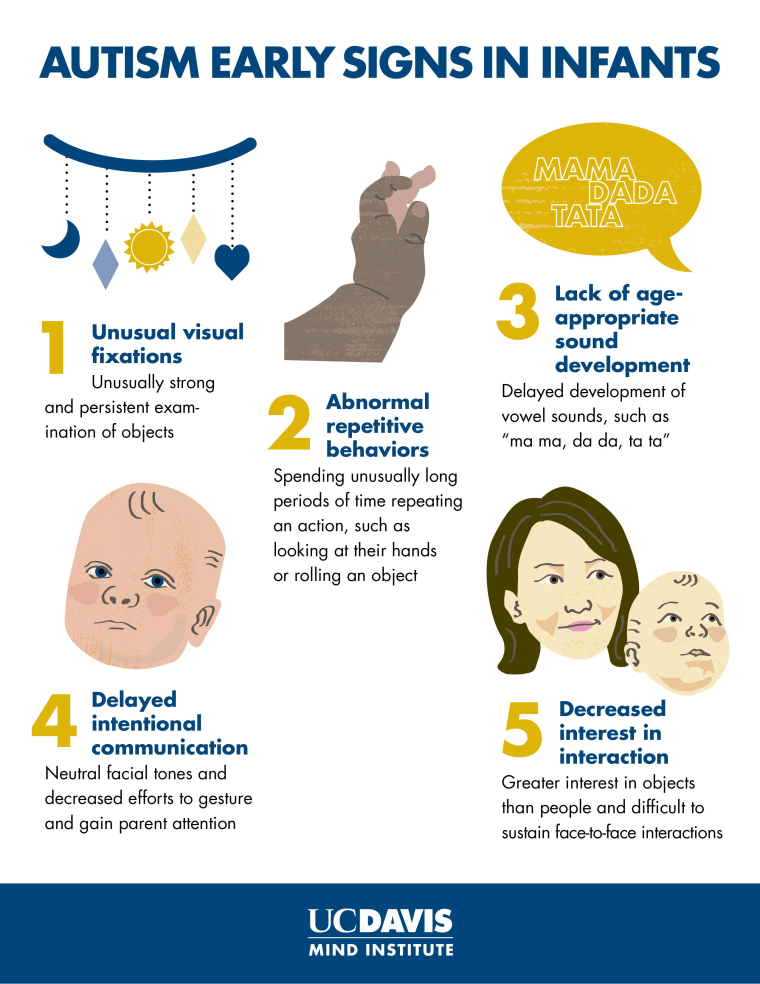Are social difficulties a sign to consult an local Aba Therapist?
Are social difficulties a sign to consult an local Aba Therapist?
Blog Article
Understanding the Influence of Behavioral Autism on Life and Social Interactions
You may not understand just how deeply behavior autism impacts everyday life and social interactions. Individuals on the range commonly navigate a globe full of communication obstacles and sensory overload. These challenges can lead to irritation and seclusion, affecting their connections and total well-being. Understanding these subtleties is important for fostering encouraging environments. What approaches can we execute to produce even more inclusive rooms and significant connections? The solutions may amaze you.
Specifying Behavioral Autism and Its Attributes
Behavioral autism, often described as autism spectrum disorder (ASD), incorporates an array of conditions characterized by challenges in social communication, interaction, and repeated actions. You could notice that individuals with ASD typically struggle to interpret social signs, which can result in misconceptions in conversations. They may find it difficult to establish eye get in touch with or engage in little talk, making social scenarios feel frustrating.
Communication difficulties can materialize in various means, from postponed speech growth to a choice for making use of fewer words. Repeated actions, such as hand-flapping or rocking, can act as coping devices to manage stress and anxiety or sensory overload. These attributes can greatly affect every day life, making it important for you to understand and support those with ASD. By recognizing these attributes, you can foster an atmosphere that advertises approval and encourages reliable interaction, helping people with autism flourish in their day-to-day interactions.
The Range of Autism: Understanding Variability in Behavior
Autism spectrum disorder (ASD) isn't a one-size-fits-all diagnosis; it differs extensively among individuals. You may experience people who are highly spoken and engage easily in conversations, while others could like singular activities or connect non-verbally.
In addition, the method people with ASD react to sensory input can vary considerably; some may be overwhelmed by brilliant lights or loud noises, whereas others prosper in boosting atmospheres. The range likewise consists of differences in social communications; some people may struggle to analyze social signs, while others navigate social setups with family member ease. Recognizing this irregularity is crucial, as it assists you value each person's one-of-a-kind experience and tailor assistance to their specific demands, cultivating a much more inclusive atmosphere for every person.
Interaction Difficulties Faced by Individuals With Autism
When you communicate with people on the autism spectrum, you may observe their special interaction challenges. They frequently encounter troubles with both nonverbal and spoken hints, which can impact their social communications. Understanding these obstacles is necessary for fostering far better connections and assistance.

Verbal Interaction Troubles
Several people on the autism spectrum experience spoken communication problems that can considerably influence their daily interactions. Your volume, pace, or tone could not straighten with social expectations, causing others to misinterpret your intents. Acknowledging these challenges can assist you and your assistance network develop approaches to improve communication and foster much better links with others in your day-to-day life.
Nonverbal Interaction Obstacles
Verbal communication isn't the only obstacle individuals on the autism spectrum face; nonverbal communication barriers can be simply as significant. These difficulties can lead to misconceptions or false impressions of social hints, making communications feel frustrating or complicated. By dealing with nonverbal communication, you can find techniques to improve your social experiences and enhance your overall high quality of life.
Social Interaction Effects
Social communications can usually really feel frustrating as a result of the special interaction difficulties faced by people with autism. You may battle with translating social cues, making it hard to understand mockery or body movement. This can bring about misconceptions or uncomfortable moments in discussions. In addition, launching and preserving discussions may feel tough, creating anxiousness in social circumstances. You may prefer organized atmospheres, making spontaneous communications awkward. It's likewise usual to experience trouble in engaging in small talk, which can prevent forming brand-new friendships. Identifying these difficulties can aid you discover strategies to boost interaction, such as exercising social abilities in secure settings or using aesthetic help - Aba Therapist Near Me. Comprehending your needs permits you to navigate social communications with greater self-confidence and simplicity.
Social Interaction and Partnership Building in Autism
While building connections can be testing for people with autism, understanding their special perspectives and communication styles can promote meaningful connections. You may see that numerous individuals on the range favor straight communication and may battle with social cues or little talk. By being uncomplicated in your interactions, you can aid create an atmosphere where they really feel comfortable.
Put in the time to pay attention and observe how they reveal themselves. This understanding can guide you in guiding conversations a lot more successfully. Participating in shared rate of interests can additionally serve as a bridge to deeper connections. Whether it's a pastime, a favorite show, or a shared enthusiasm, these typical strings can open up doors to relationship.
Day-to-day Live Regimen: Browsing Obstacles and Approaches
Steering everyday life routines can be particularly challenging for individuals with autism, especially when unexpected changes take place. To navigate these difficulties, take into consideration executing aesthetic schedules or lists.
Developing a routine that includes sensory breaks can also be valuable. You can plan time-outs throughout your day to charge. It's vital to interact with those around you, allowing them understand your preferences and needs. This helps create an understanding atmosphere.
Lastly, method mindfulness strategies to handle stress and stress and anxiety. Easy breathing exercises or basing techniques can make a considerable distinction. By incorporating these techniques, you can boost your daily routine and lessen disturbances, making life really feel much more workable.
Strengths and Capabilities of People on the Autism Spectrum
Recognizing everyday life regimens is just one aspect of the autism experience. Many people on the autism range have exceptional toughness and capacities that establish them apart.
In addition, your memory abilities usually radiate, especially in locations of rate of interest. Aba Therapist Near Me. This flair for maintaining info can make you a useful resource in areas like innovation, art, or science. You might likewise exhibit solid aesthetic thinking, allowing you to envision intricate ideas and solve troubles artistically
Additionally, your one-of-a-kind viewpoint on the world can cultivate empathy and understanding in others, improving social communications. Embracing these toughness not only enhances your confidence but likewise helps others value the diverse abilities you give the table.
Creating Comprehensive Atmospheres for Individuals With Autism
Developing comprehensive atmospheres for individuals with autism begins with developing sensory-friendly spaces that deal with their unique demands. You can additionally promote possibilities for social interaction, helping to develop friendships and links. By making these adjustments, you'll contribute to a much more inviting atmosphere for everybody.
Creating Sensory-Friendly Spaces
While making sensory-friendly rooms, it's vital to mirror on the one-of-a-kind requirements of individuals with autism. Incorporate quiet areas where individuals can pull back and recharge when bewildered. Consist of visual schedules or clear signs to assist individuals navigate the room with confidence.
Advertising Social Interaction Opportunities
Creating sensory-friendly rooms not just addresses private comfort but also sets the phase for meaningful social interactions amongst individuals with autism. To promote these interactions, develop comprehensive atmospheres that invite engagement. Arrange structured activities, like art courses or group games, that motivate cooperation without overwhelming sensory input. Usage visual aids and clear communication to assist every person engage conveniently. Encourage peer mentoring, coupling people with autism with encouraging peers that can lead them through social circumstances. In click here addition, take into consideration hosting normal community occasions that celebrate neurodiversity, fostering acceptance and understanding amongst all individuals. By implementing these strategies, you can enhance social possibilities, assisting people with autism build friendships and strengthen their social abilities in a secure, inviting setting.

Frequently Asked Questions
Just How Can Buddies Support Somebody With Behavioral Autism?
You can support a buddy with behavioral autism by holding your horses, paying attention proactively, and valuing their borders. Take part in activities they delight in, communicate openly, and create a comfortable atmosphere where they really feel valued and recognized.
What Resources Are Offered for Parents of Kid With Autism?
You can check out different resources for parents of youngsters with autism, consisting of support system, academic internet sites, and local social work. Linking with various other parents can likewise offer important understandings and shared experiences to aid browse obstacles.
Can Behavioral Autism Change With Time?

Yes, behavioral autism can transform over time. You might see changes in interaction, social skills, and actions as your child grows. Early treatment and support commonly play crucial roles in these developing adjustments.
Exactly How Do Sensory Sensitivities Impact Every Day Life?
Sensory sensitivities can make daily experiences frustrating. You might battle with intense lights or loud sounds, causing stress and anxiety or avoidance. Discovering environments that fit your demands can substantially boost your convenience and total every day life.
What Are Common Misconceptions Regarding Behavioral Autism?
You might believe behavior autism only influences communication abilities, but it's more complicated. Numerous assume people do not have compassion or knowledge, which isn't true. Comprehending these misunderstandings helps foster approval and assistance for those on the range.
Behavior autism, frequently referred to as autism spectrum disorder (ASD), includes an array of conditions defined by challenges in social interaction, interaction, and repetitive habits.Social interactions can frequently really feel overwhelming due to the one-of-a-kind communication obstacles faced by people with autism.Designing sensory-friendly areas not only addresses individual convenience however likewise sets the stage for purposeful social interactions amongst people with autism. Motivate peer mentoring, pairing individuals with autism with supportive peers who can lead them via social scenarios. By executing these approaches, you can enhance social chances, helping people with autism construct relationships and reinforce their social skills in a secure, welcoming environment.
Report this page